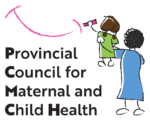The transition to adult-oriented healthcare services for youth with a chronic and/or complex physical, developmental and/or mental health condition is a process that begins prior to the actual transfer and does not stop once the transfer has occurred. Youth, their families, paediatric healthcare providers and adult healthcare providers all have an important role to play in the shared responsibility of patient care prior to and following the transfer of care.
The goals of planned healthcare transitions are to ensure high-quality, developmentally appropriate, and psychologically sound healthcare that is continuous, comprehensive and coordinated, before and throughout the transfer of youth into the adult system. In doing so, youth and, when appropriate, their families can learn to advocate effectively for themselves, maintain good health behaviors and use healthcare services to maintain their health and prevent secondary disability.
PCMCH’s resources and tools support a provincial approach to the transition of youth to adult-oriented services. These resources are generic rather than organization-, geography- and/or health condition-specific, so that they can be adapted for each person, patient population, organization and geographic location.
The following recommendations and associated documents/resources/tools have clinical applicability for paediatric and adult healthcare providers in helping youth and their families who will be, or have already been, transitioned to adult services. Associated resources and tools are below.
Quality Standard: Transitions From Youth to Adult Health Care Services
In addition to the above resources, PCMCH partnered with Ontario Health to assemble an advisory committee comprised of young people and caregivers, and clinical leaders from a broad range of sectors to develop the Transitions From Youth to Adult Health Care Services quality standard. Drawing on evidence from clinical guidelines and expert consensus, this quality standard includes six quality statements that address areas with high potential to improve transitions to adult care for young people in Ontario, including: early identification and transition readiness, information-sharing and support, the transition plan, coordinated transitions, introduction to adult services, and transfer completion.
The Transitions From Youth to Adult Health Care Services quality standard can be used to help patients, families, and caregivers know what to ask for in their care; to help health care professionals know what care they should be offering, based on evidence and expert consensus; and to help health care organizations measure, assess, and improve their performance in caring for patients.
